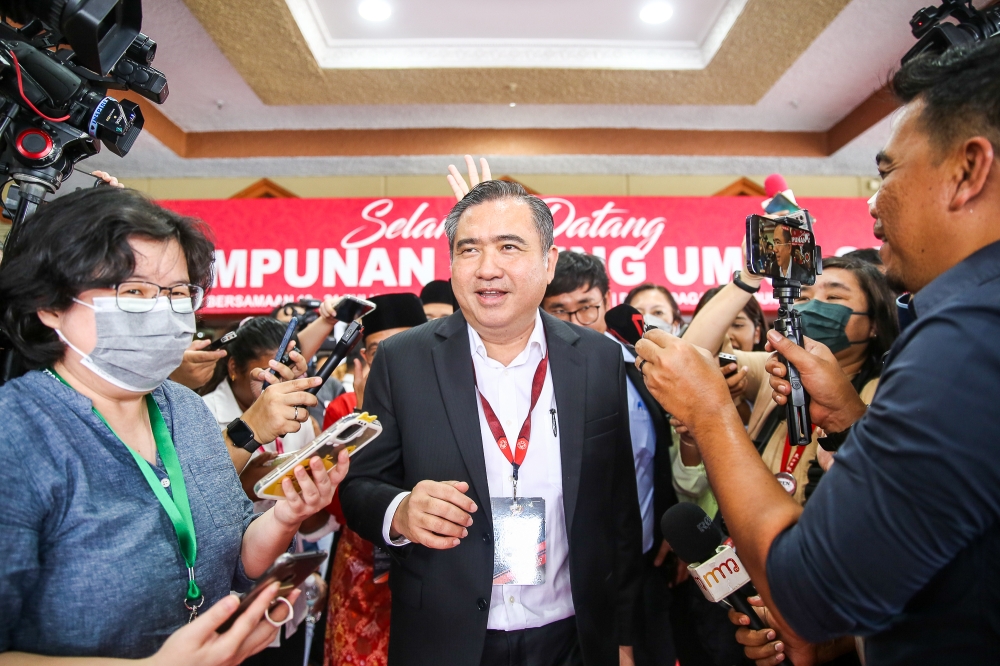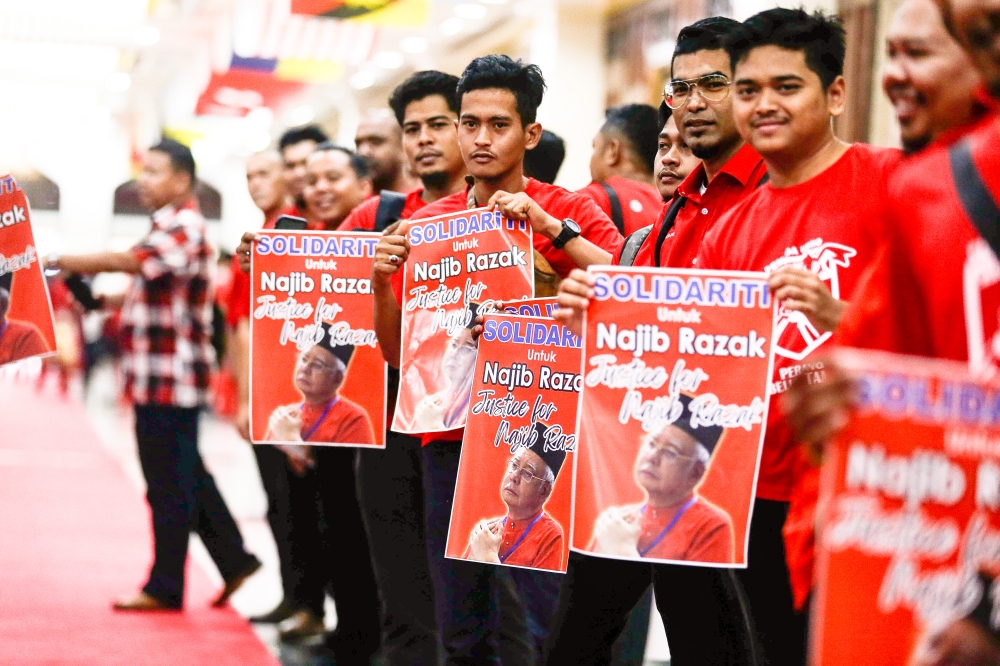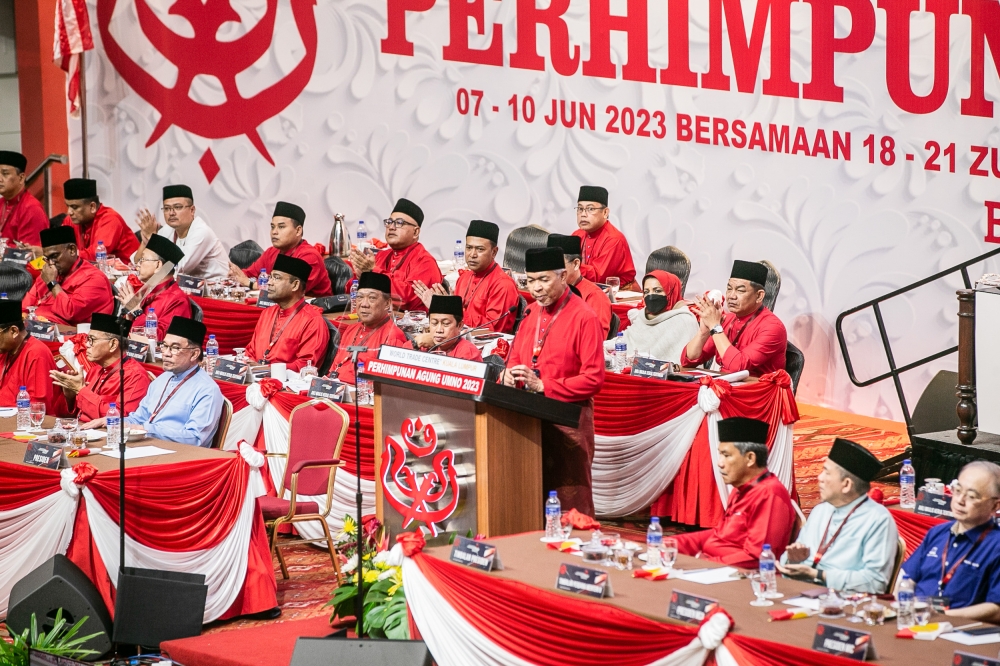KUALA LUMPUR, June 11 — Umno concluded this year’s annual general assembly yesterday assuring wary party grassroots that it would rebuild.
After six decades in power, the grand old party was nearly crippled in last November’s general election.
It remains in power today but as the weaker complementary ally of a political bloc that won the most seats, Pakatan Harapan, whose members include a sworn arch-rival, DAP.
This alliance has fuelled talk about growing unease among the party’s grassroots, most of whom have for decades been indoctrinated to view the multiracial outfit as an unholy political sect that stood against everything that is Malay and Islam.
So how was this new relationship received at this year’s congress? Here are the three things we learned from the Umno AGM 2023:

DAP is still very much the favourite (and feared) bogeyman
Throughout the three-day assembly, party delegates mentioned DAP more than it did Perikatan Nasional, the Opposition bloc. Apart from party president Datuk Seri Ahmad Zahid Hamidi, hardly any leaders were heard firing salvos towards the PAS-led bloc, which nearly wiped out the Malay nationalist party in the northern rice belt states that were traditionally Umno strongholds.
Even Bersatu, the splinter party comprising former Umno members, received scant attention. Instead, there were repeated but indirect reminders that Umno risks compromising its soul by working with DAP, and that clear boundaries and conditions should be set if the cooperation is to work.
Political observers did anticipate this and suggested that it is likely just posturing meant to appease the grassroots. Still, if anything, the undertone of these messages may indicate genuine uneasiness within the party’s base who powers Umno’s election machinery.
If unaddressed, the discomfort may well end up paralysing the ruling coalition’s campaign in the state elections.

Umno will not relent about Najib’s freedom
Umno leaders made it clear that they would not back down from the push to free former prime minister Datuk Seri Najib Razak, now serving a 12-year jail sentence for embezzling funds from SRC International Sdn Bhd, a 1MDB subsidiary.
In his opening speech, Zahid expressed implicitly to Prime Minister Datuk Seri Anwar Ibrahim, the AGM’s guest of honour, that party grassroots see Umno’s membership in the unity government as leverage to set Najib free.
This suggests Najib remains highly influential in the party, and that his faction could mobilise the ground to put pressure on Zahid, who is one of Anwar’s two deputies.
Analysts believe this could set off tension between Umno and PH, which would likely heighten if the alliance fails to perform well in the state polls.

Many Umno leaders remain blind to its problems
Messages from the policy speech debates suggest Umno leaders are sincere about wanting to keep the unity government intact. Yet some would like to believe that Umno deserves more than just playing second fiddle.
Despite having won just 26 federal seats in the 15th general election, the lowest tally in a trend of consecutive decline since 2008, a large number of delegates felt the party should still be given a more dominant role in the current government.
And while Umno’s rapidly waning popularity has been blamed on the purported opulence of its leaders and decades of mismanagement, these widely held views appeared to have eluded many of Umno’s top leaders, who still think the party’s humiliating defeats were merely the result of weak messaging.
If anything, this seeming inability to identify the root causes of its own declivity has always been the factor hindering much-needed reform.






















